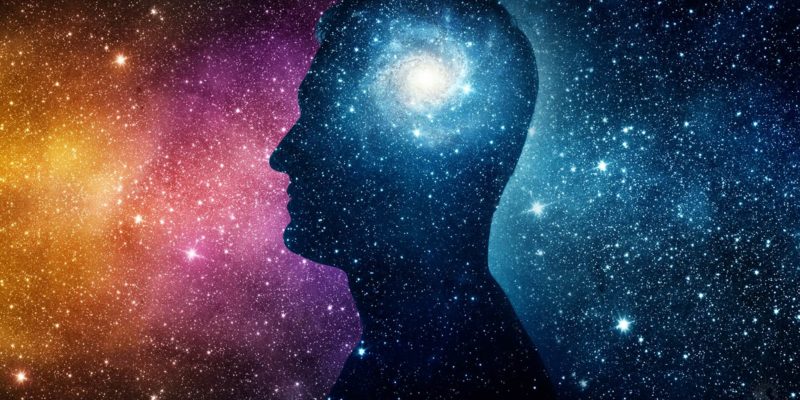Study Finds Striking Similarities Between The Brain And The Cosmos
Scientists recently discovered striking similarities between the brain’s neural structure and the patterns of universe. This connection to the cosmos is amazing.
Of course, many scholars and researchers have already noticed that humans and nature share the same structure. For example, our veins look a lot like the branches of lightning and our fingerprints have patterns similar to tree rings. Nebulae in space have structures strangely similar to our irises, and the birth of a cell looks like the death of a star.
How do we explain all this? Now it seems that science is finally catching up with what sages and saints of various religions have been saying for millennia. We are not just part of the cosmos, we ARE the cosmos that experiences itself. Therefore, since we come from stardust, our makeup bears a striking resemblance to nature and the cosmos.
A new study provides further proof that the human brain and the universe have more in common than we think. Of course, the similarities go far beyond appearances. In fact, they both have well-defined networks and organizational patterns. The findings were published in Frontiers in Physics on Nov 16, 2020.
How the study that relates the cosmos to the human brain worked
However, the researchers wanted to dig deeper and discover similarities that don’t seem obvious at first glance. Astrophysicist Franco Vazza from the University of Bologna in Italy and neurosurgeon Alberto Feletti from the University of Verona collaborated on the study. They have spent the last years of their lives analyzing the similarities between the universe and the human brain.
This is what they discovered so far
The brain and the universe have a size difference of 27 orders of magnitude (or a billion trillion). Of course, the energy processes that create the structure of the brain and the universe are very different. However, the researchers say that both have similar levels of complexity and self-organization. They dedicated their study to finding out more about these structural similarities.
For starters, they found that the human cerebellum contains about 69 billion neurons. The cosmos has about 100 billion galaxies. The team also discovered clearly defined networks running each, with strands connecting the nodes of both systems. Once again, neurons in the brain and galaxies in the Universe act as “networks.”
The information and energy flowing between the nodes only represent 25 percent of the mass and energy of each system. Also, the composition of the brain and the universe have great similarities. While the brain is about 77 percent water, the universe comprises about 72 percent dark energy. These materials play a passive role in helping systems function, but structures could not exist without them.
The study data
After determining similarities, they compared the structures quantitatively based on side-by-side comparisons. They obtained samples of the human cerebellum and cortex at various magnifications and compared them to simulations of the cosmos. They specifically looked for similarities in the matter density fluctuations of each. While the two operated on very different scales, the team found similar distribution patterns in the density fluctuations.
“We calculated the spectral density of both systems. This is a technique that is often used in cosmology to study the spatial distribution of galaxies, ”Vazza said in a Press release. “Our analysis showed that the distribution of fluctuation within the cerebellar neural network on a scale of 1 micrometer to 0.1 millimeter follows the same progression of matter distribution in the cosmic network but, of course, on a larger scale. that goes from 5 million to 500 million light years. “
Fascinated by this discovery, the team investigated further and looked at the number of filaments connecting each node. They found that the cosmic network, or galaxies, averaged 3.8 to 4.1 connections per node. The human brain it had between 4.6 and 5.4 connections per node. Furthermore, both structures appeared to have more connections around the central nodes and have similar information capabilities.
In a recent study, researchers found that the human brain can 2.5 petabytes memory. Other recent study de Vazza suggests that the Universe would need about 4.3 petabytes to hold all of its memories.
Previous studies linking the cosmos to the human brain
in a previous study in 2017, the researchers wrote that:
“Generally speaking, this similarity in memory capacity means that the entire body of information that is stored in a human brain (for example, a person’s entire life experience) can also be encoded in the distribution of galaxies. in our universe. “
This does not necessarily mean that the Universe IS a brain or that it can be aware of itself. Although, some scientists and religions believe that the cosmos has intelligence just like we do. However, this study shows that the laws of the cosmos seem create the universe and brain in the same way.
Studies in the past seem to confirm this. According to a 2012 Document on Simulations, the causal network that makes up the universe is very similar to that of the brain. Furthermore, complex systems such as the Internet and social and biological systems share this structure. The recent study by Vazza and Feletti could help scientists understand these general laws and systems in a more complex way.
“Once again, the structural parameters have identified unexpected levels of agreement. Probably, the connectivity within the two networks evolves following similar physical principles, despite the surprising and obvious difference between the physical powers that regulate galaxies and neurons, ”said Feletti.
“These two complex networks show more similarities than those shared between the cosmic network and a galaxy or a neural network and the interior of a neuronal body.”









